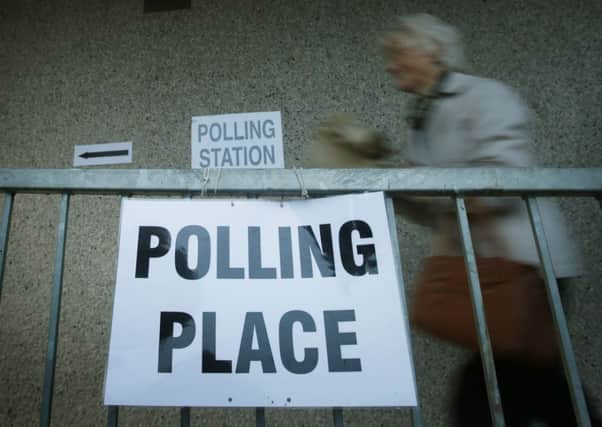The YP comment: Why Scotland must vote No


It is a once-in-a-generation decision that will have profound historical, political and economic ramifications for the future fabric and prosperity of this great country.
The outcome could also be a game-changer for Yorkshire – the momentum for greater financial and decision-making powers to the English regions, and the North in particular, is now unstoppable in the wake of the 11th hour concessions that David Cameron, Nick Clegg and Ed Miliband made in a joint pledge to appease waivering Scots.
Advertisement
Hide AdAdvertisement
Hide AdThe so-called “vow” was, frankly, emblematic of this unedifying campaign – the pro-Union parties struggling to articulate a clear message, and having to make vague and uncosted promises that have not even been sanctioned by Parliament, to counter SNP leader Alex Salmond’s passionate nationalism.
It was illustrated by their rash promise to retain the Barnett formula – the discredited funding mechanism which enables Scots to receive more advantageous funding compared to the rest of the UK. Even 91-year-old Joel Barnett, the Labour peer who devised the scheme in the late 1970s to neuter the then upsurge in nationalism, says the mechanism was never intended to be a long-term policy and should be abolished.
Yet it is indicative of the strained relationship between Westminster’s leaders and the people that they purport to serve that their financial inducements – promises greeted with dismay by many English MPs – have not yet swung the outcome decisively in favour of the Better Together campaign. Irrespective of the final outcome, the lack of political trust in every corner of the country is beginning to become corrosive with rational people feeling the need to make irrational decisions just to make their voices heard.
For, in many respects, this referendum should not hinge on whether a handful of uncommitted voters allow their hearts to rule their heads. The outcome should not even be open to doubt. As the Prime Minister said with such passion, a Yes vote would be “the end of a country that all of us call home” and which has had the strength to change the course of world history. A Yes vote would trigger the Balkanisation of Britain and plunge this island of nations into a period of unprecedented political turmoil. And a Yes vote would also choke the economic recovery – there are considerably more people unemployed in Yorkshire than north of the border and the National Institute of Economic and Social Research is among those to warn that an independent Scotland could face the prospect of financial ruin within a year.
Advertisement
Hide AdAdvertisement
Hide AdYet, on each of the three major campaign issues, Mr Salmond has failed to make a convincing case for the United Kingdom’s break-up. His economic assumptions, not least on currency union, are fanciful; politically neutral military leaders say Scottish independence would make the whole UK more vulnerable to attack and his scare-mongering over the NHS has been distasteful.
Of course, the First Minister’s formidable campaigning should be acknowledged. Single-handedly, he has taken Scotland to the brink of independence – and Yorkshire’s future would certainly be more uplifting if the county could lay claim to such an energetic and dynamic leader. But today’s vote must not go down in history as the “Braveheart Ballot”. It is far more important than that. It is about the very future of this country and we implore voters to endorse the No campaign and acknowledge that Scotland and Great Britain’s interests are best served as one country that is united in a common desire to secure a better future for all.
Food for thought
IF SCOTS want further evidence of Britain at its very best ahead of today’s date with destiny, they only have to look at the resilience of this country’s farmers, the quality of their produce and how they have pulled together to fight for a fairer deal from the European Union, the imposition of clearer labelling laws and greater recognition from the major supermarkets.
Whether it be Scottish beef – or Yorkshire lamb for that matter – UK agriculture remains the envy of the world in spite of the indifference of those political leaders who have been reluctant to stand up for farmers.
Advertisement
Hide AdAdvertisement
Hide AdAs such, the pre-election manifesto published by the National Farmers’ Union could not be more timely – the production of food is an issue is pertinent to every family in the land and it is important that the policy implications are not marginalised because of the fact that all elections are won and lost in marginal urban constituencies rather than the rural heartlands of Great Britain.